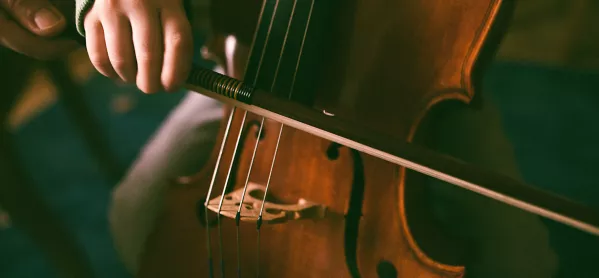New funding will give schools the chance to buy musical instruments for tens of thousands of pupils, the Department for Education has said.
Under a new national plan for music education, unveiled today, schools will get £25 million to purchase instruments and equipment, including adapted instruments for those with special educational needs and disabilities (SEND).
The government has also confirmed that it will continue its Music Hubs programme until 2025, with £79 million being made available every year under the scheme.
The updated guidance within the plan sets out that every school should have a designated music lead or head of department.
And it outlines that schools should support pupils to pursue music beyond key stage 3 where possible, noting that this will “unlock careers” for some young people.
Funding boost for music education in schools
The DfE said that schools will also be asked to offer at least one hour of music curriculum a week, although this is already an expectation outlined in the Model Music Curriculum, released last year.
The announcement came at the same time that the DfE and Department for Digital, Culture, Media and Sport (DCMS) jointly announced extra interventions for sport and PE.
They said that £11 million would support the continuation of the School Games programme to give particularly passionate and talented young people the opportunity to participate in competitive sport.
The DfE said that this would be delivered alongside a previously announced £320 million to give more children access to high-quality PE lessons and sporting opportunities in 2022-23.
Speaking about the plans, education secretary Nadhim Zahawi said: “I want every child to have the opportunity to develop a love of music and sport, so they can explore their passions and fulfil their potential.
“That’s why I’m thrilled that we’re updating our National Plan for Music Education, as well as providing students with around 200,000 new musical instruments.”
The DfE said the figure of 200,000 new musical instruments was based on an assumption that an average instrument costs £100.
Jamie Njoku-Goodwin, chief executive of UK Music, said that the plan and commitment to investment were “very welcome” and that continued funding for music education was “vital” to unlocking the creative potential of young people.




